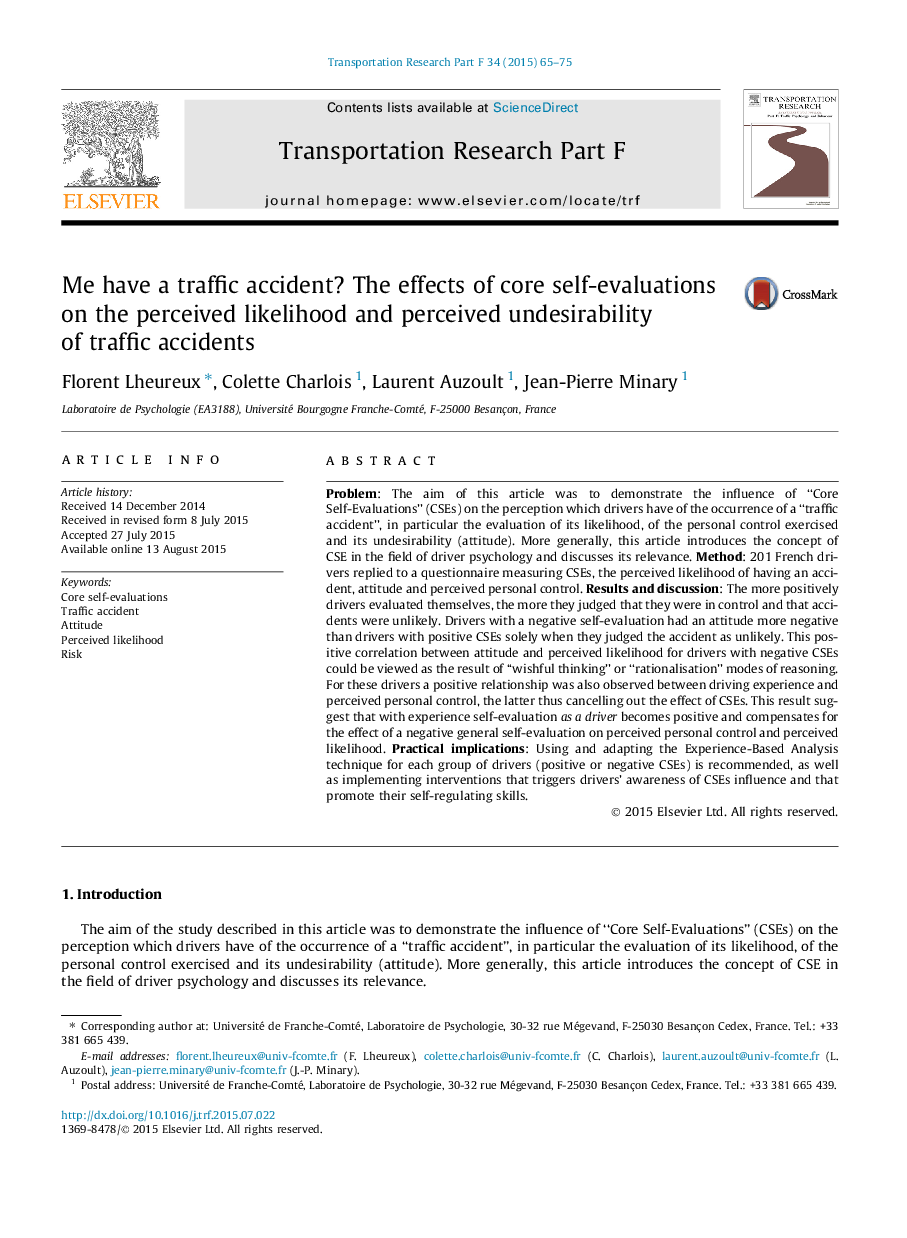| کد مقاله | کد نشریه | سال انتشار | مقاله انگلیسی | نسخه تمام متن |
|---|---|---|---|---|
| 897674 | 1472449 | 2015 | 11 صفحه PDF | دانلود رایگان |
• Introduces the Core Self-Evaluations (CSEs) concept in traffic psychology research.
• CSEs are negatively linked to the perceived likelihood of accidents.
• CSEs are positively linked to perceived personal control over accident occurrence.
• This relationship is absent when drivers are experienced.
• When the accident is perceived as likely CSEs and attitudes are negatively linked.
Problem: The aim of this article was to demonstrate the influence of “Core Self-Evaluations” (CSEs) on the perception which drivers have of the occurrence of a “traffic accident”, in particular the evaluation of its likelihood, of the personal control exercised and its undesirability (attitude). More generally, this article introduces the concept of CSE in the field of driver psychology and discusses its relevance. Method: 201 French drivers replied to a questionnaire measuring CSEs, the perceived likelihood of having an accident, attitude and perceived personal control. Results and discussion: The more positively drivers evaluated themselves, the more they judged that they were in control and that accidents were unlikely. Drivers with a negative self-evaluation had an attitude more negative than drivers with positive CSEs solely when they judged the accident as unlikely. This positive correlation between attitude and perceived likelihood for drivers with negative CSEs could be viewed as the result of “wishful thinking” or “rationalisation” modes of reasoning. For these drivers a positive relationship was also observed between driving experience and perceived personal control, the latter thus cancelling out the effect of CSEs. This result suggest that with experience self-evaluation as a driver becomes positive and compensates for the effect of a negative general self-evaluation on perceived personal control and perceived likelihood. Practical implications: Using and adapting the Experience-Based Analysis technique for each group of drivers (positive or negative CSEs) is recommended, as well as implementing interventions that triggers drivers’ awareness of CSEs influence and that promote their self-regulating skills.
Journal: Transportation Research Part F: Traffic Psychology and Behaviour - Volume 34, October 2015, Pages 65–75
